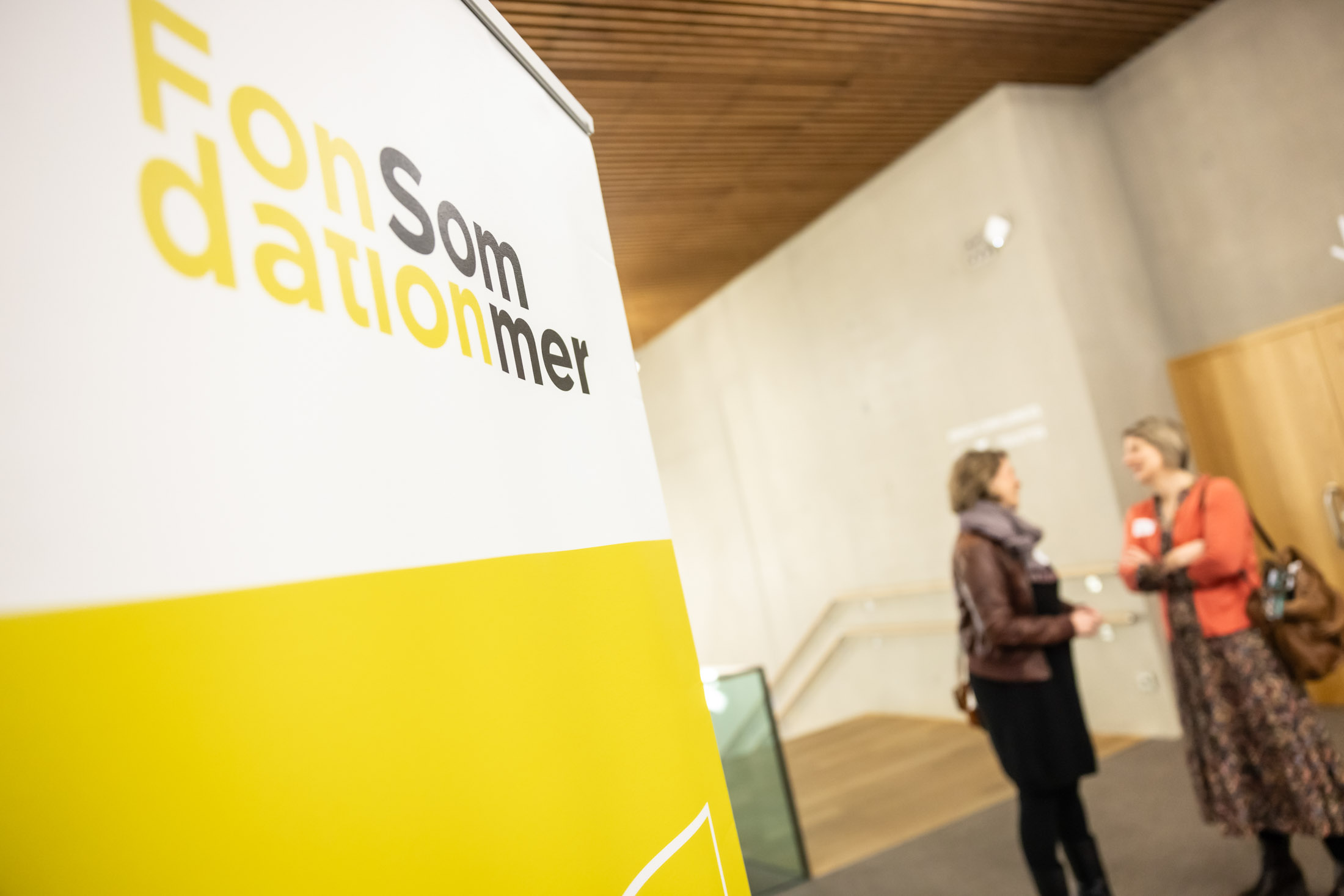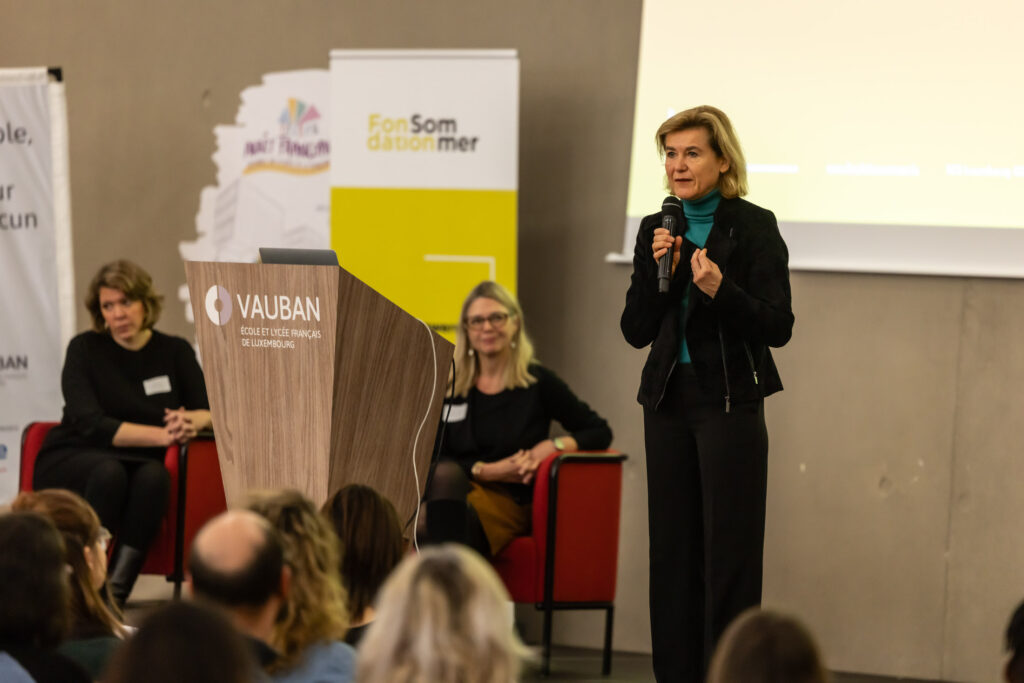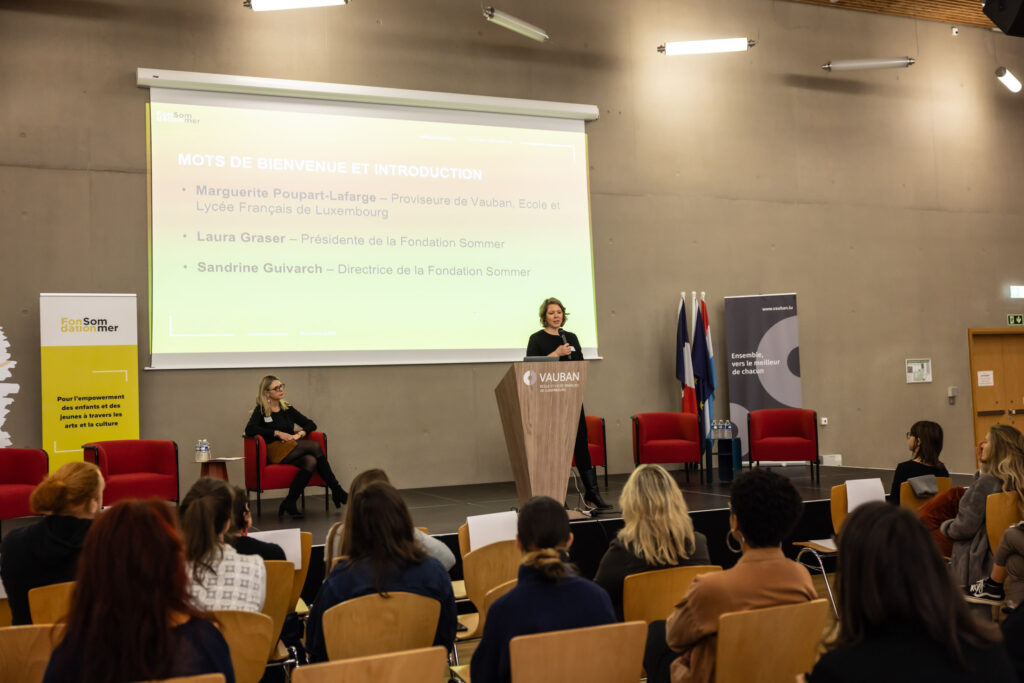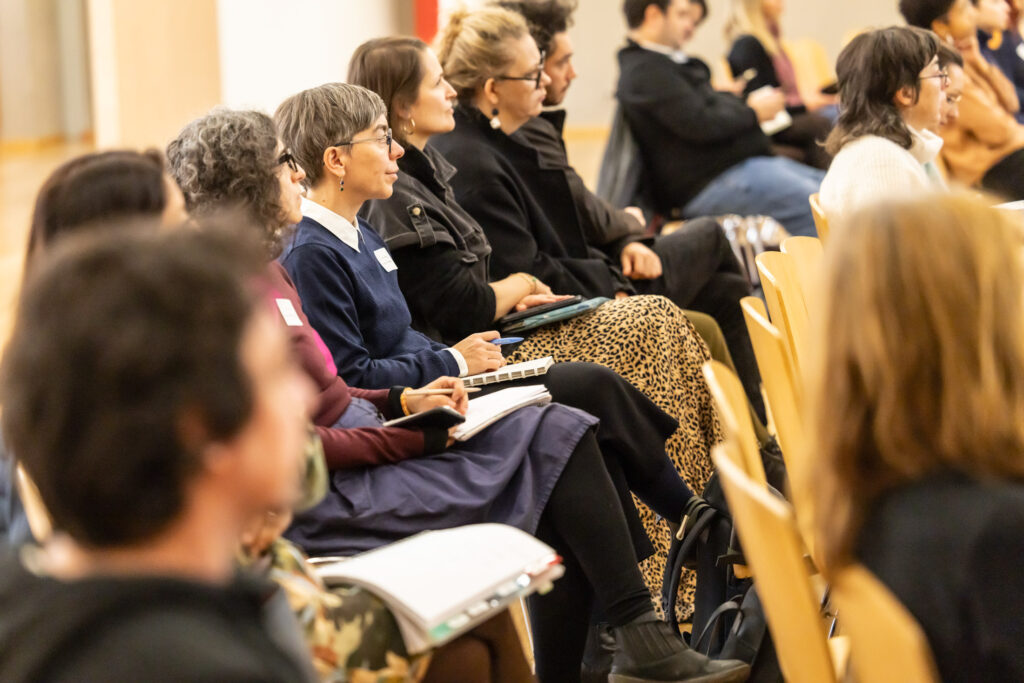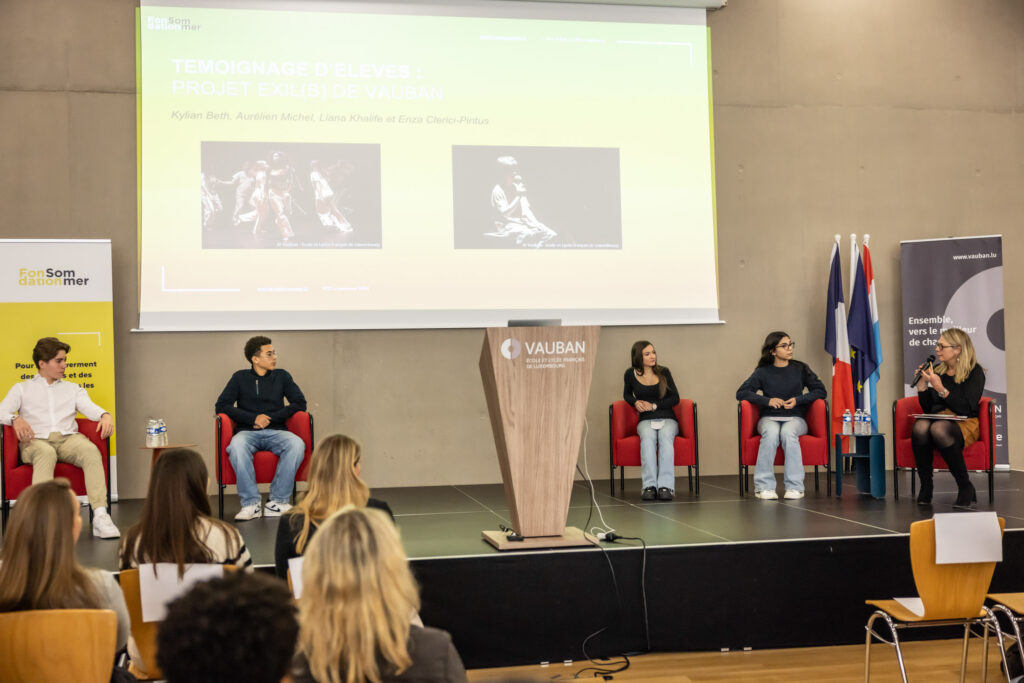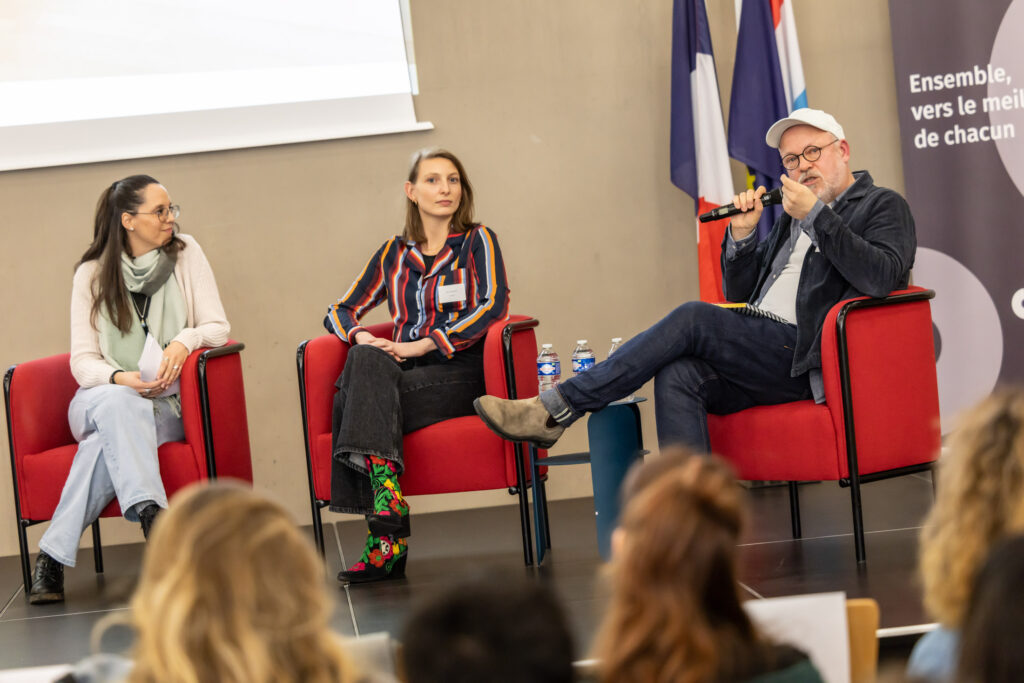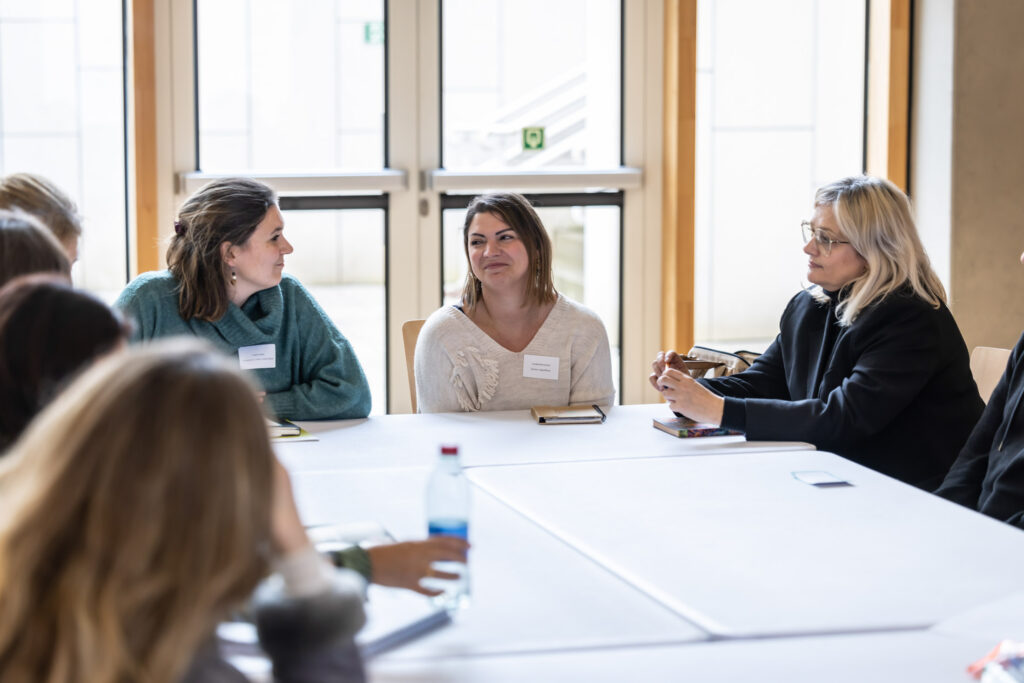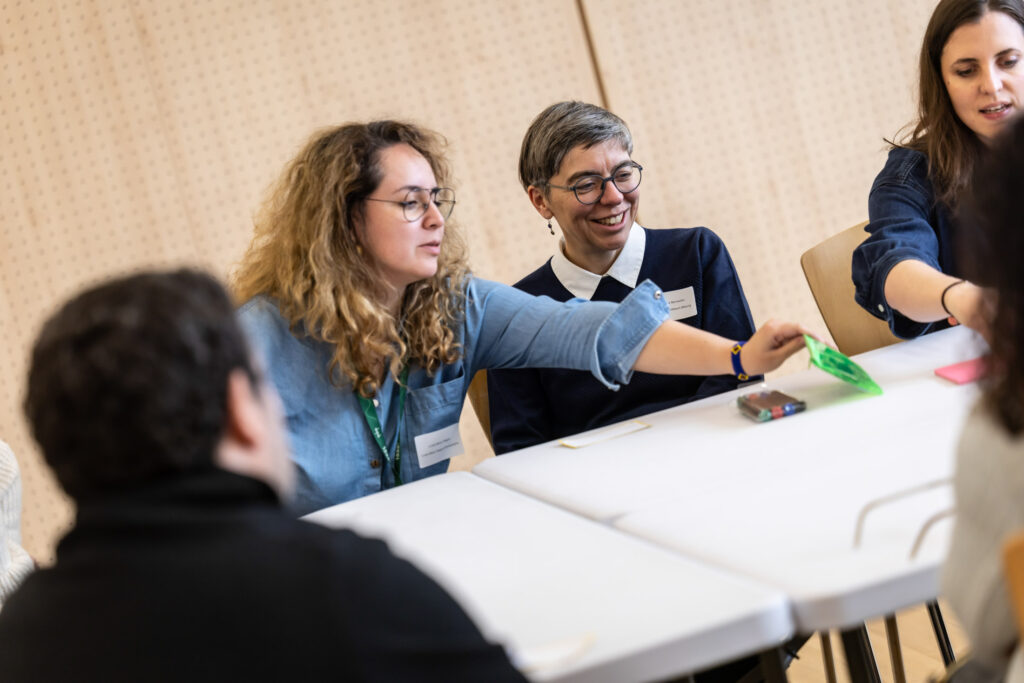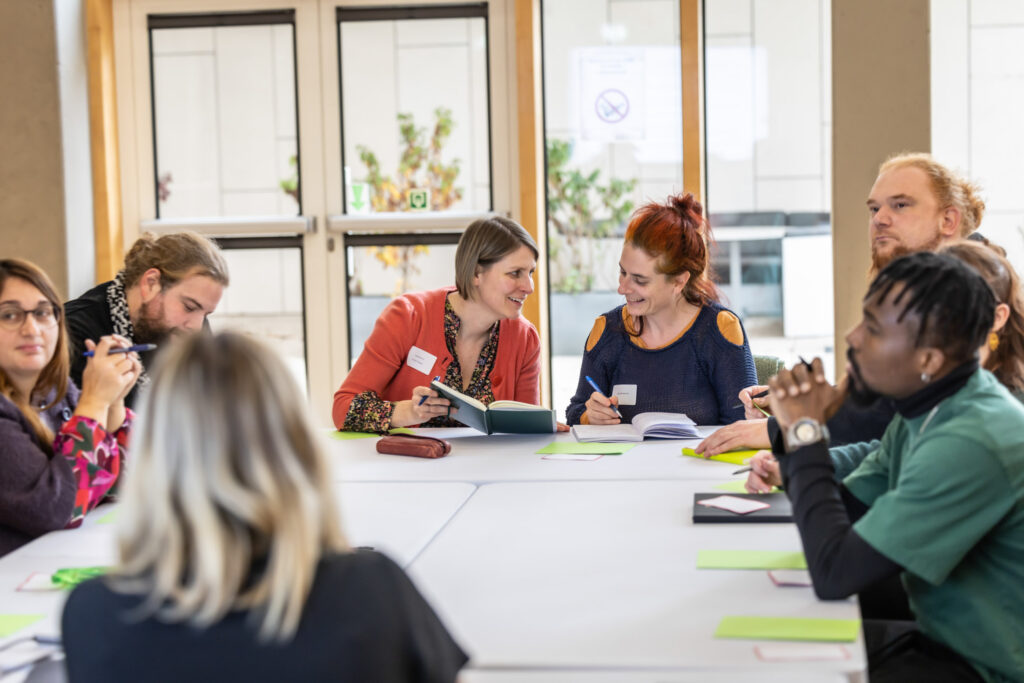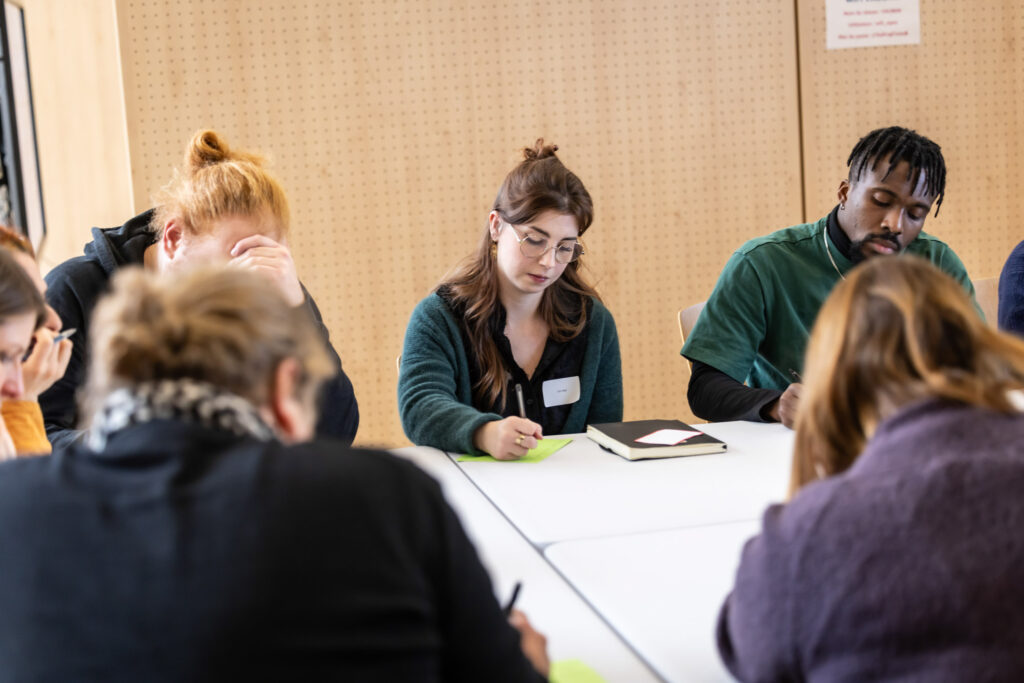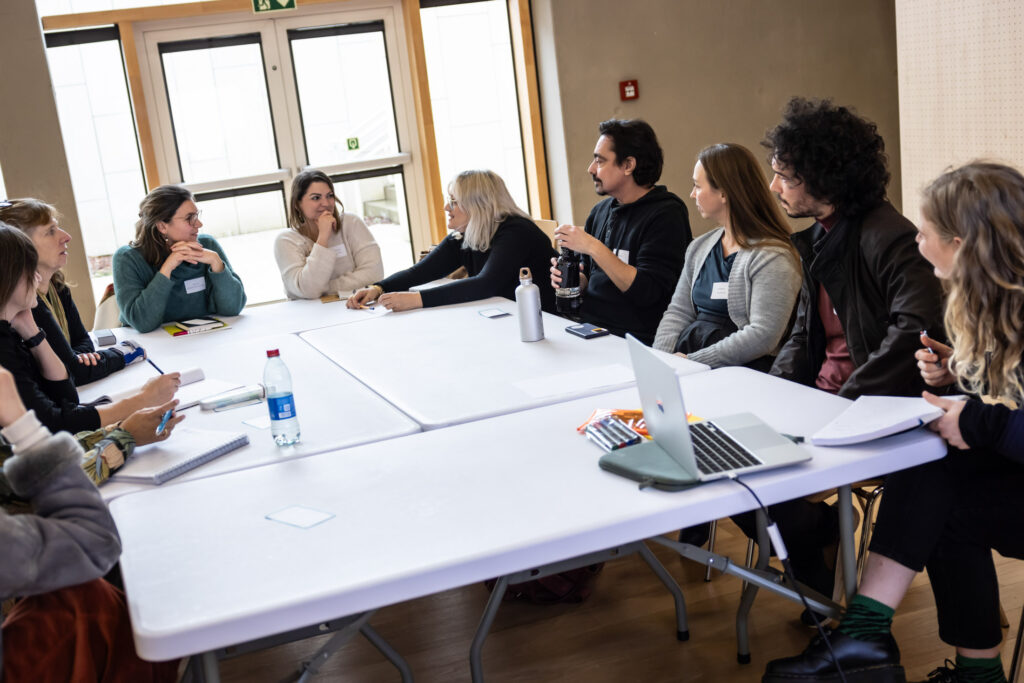On Wednesday, November 27, 2024, the 3rd professional meeting organized by the Fondation Sommer took place. This annual event, extended for the first time to a full day, was held in the Confluences Hall of the Vauban High School in Luxembourg. Around sixty professionals from Luxembourg’s cultural, artistic, social, and educational sectors responded to the Fondation Sommer’s invitation to discuss “The Key Challenges of Empowering Children and Young People Through Arts and Culture.”
This third professional meeting was divided into two parts:
- Morning Session: Presentations and discussions on cultural and artistic projects for children and young people, supported by the Fondation Sommer.
- Afternoon Session: Workshops on the theme “Projects for Young People: How to Design Relevant, Impactful, Sustainable, and Ecological Cultural and Artistic Initiatives.”
Summary of the Day:
In the morning, participants were invited to exchange insights based on the Fondation Sommer’s observations about cultural and artistic projects aimed at children and young people. Aware of the challenges project leaders face, the Fondation regularly reflects on and adjusts its working methods when necessary. Through its support of participatory cultural projects for children and young people, the Fondation identified several key issues:
- The gap between the scale of cultural educational offerings and the availability of young audiences in both formal and informal educational or cultural institutions.
- The difficulty for project leaders to reach their target audiences effectively.
- The proliferation of artistic projects aimed at vulnerable groups, carried out without coordination or mutual sharing of best practices and results.
This fragmented and scattered development of participatory artistic activities for young audiences raised questions about the responsibility of a foundation that funds such projects. The Fondation recognized the need to design financial support that makes sense within the ecosystem at the crossroads of culture, education, and social work—while avoiding the encouragement of an exponential production of initiatives.
Discussions in the morning focused on:
- The observations, lessons, and insights drawn by the Fondation from its annual calls for projects.
- Reflections on how to act more sustainably and create long-lasting impact.
- Results and suggestions for improving and generalizing the Artist Residencies in Schools (RAMS) initiative, which offers an educational and cultural response to the challenges previously identified.
On this last point, testimonials from various actors involved in the initiative were shared.
In the afternoon, participants engaged in workshops focused on the theme: “Projects for Young People: How to Design Relevant, Impactful, Sustainable, and Ecological Cultural and Artistic Initiatives?”
Following an introduction by Céline Schall, a cultural sciences researcher from the University of Luxembourg, participants were divided into three groups:
- Group 1: Focused on defining target audiences and addressing challenges in reaching them.
- Group 2: Explored the roles and challenges of artists and cultural mediators in educational or social environments.
- Group 3: Examined the structural impact and sustainability of projects.
At the end of the day, the three groups presented their findings to the other participants. “We are reflecting on a new framework for action to bring about sustainable change, and the discussions from these workshops should help us move forward,” stated Sandrine Guivarch, director of the Fondation Sommer.
Photos: © boshua
